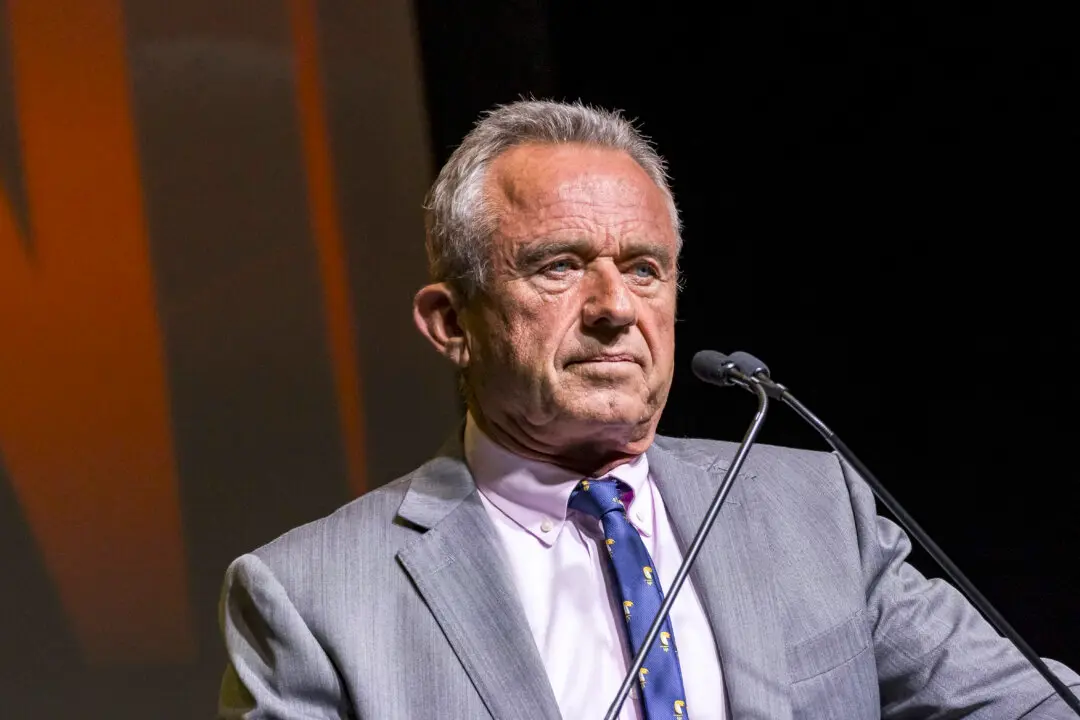Up to 250,000 foreign nationals have entered the country using the U.S. Customs and Border Protection (CBP) scheduling app launched by the Biden administration as a part of its “new legal pathways” strategy.
According to this data, which the Center for Immigration Studies (CIS) obtained from the Department of Homeland Security (DHS) through a Freedom of Information Act request, 136,000 people came from Cuba, Haiti, Venezuela, and Nicaragua, while the rest came from an array of 93 countries, according to CIS senior fellow Todd Bensman.
The CBP app was advertised by the White House in January 2023 as a way for “inadmissible aliens” from Cuba, Haiti, Venezuela, and Nicaragua to schedule an appointment with a CBP officer to be escorted through a port of entry, then granted temporary “humanitarian parole.”
Through humanitarian parole, these foreign nationals must sign an agreement to report to an Immigration and Customs Enforcement (ICE) office in whatever town they choose to live.
In addition, they must sign a renewable, two-year work permit.
The White House rationalized its plan with the justification that it would reduce unlawful entry, protect migrants from smugglers, and prevent overcrowding at border facilities.
“In the year since the administration switched to the ‘lawful pathway’ strategy, Biden’s Department of Homeland Security (DHS) has offered little information on the total number, nationalities, and means of arrival (land or air) of individuals it has brought into the United States through this program,” Mr. Bensman said.
He said the White House has denied requests for data from CIS, members of Congress, and migrant advocacy organizations.
By litigation and a threat of subpoena from House Homeland Security Committee Chairman Mark Green (R-Tenn.), CIS obtained the data, which covers May to August 2023.
Serious Concerns
The report raises concerns about the Biden administration’s immigration policies, Mr. Bensman said.“For example, the Biden administration accepted foreign nationals from 24 nations designated by the U.S. government as being of national security concern because Islamic terrorist organizations operate in them,” he said. “U.S. homeland security professionals have long tagged foreign nationals from such countries as ‘special interest aliens’ (SIAs)—or in the current Biden administration parlance ‘special interest migrants’ (SIMs)—regarding them as higher risks that warrant more security vetting. In the past, the government has been forced to contend with SIAs because they crossed illegally of their own volitions and got caught.”
However, with the CBP One program, the government chose to authorize the parole SIAs from multiple nations ranging from Iran to Egypt.
“Because these approved entrances have remained unknown to the American public, the Biden administration has not been questioned about whether it conducted enhanced security screening for these migrants (as was the practice with those caught crossing illegally) before affirming them for parole through ports,” he said.
The government has approved 99.7 percent of applicants and rejected 698 out of “hundreds of thousands.”
“The government has withheld all information on the handful of rejections,” he said.
Mr. Bensman said the CBP One program has brought in 57,000 Mexicans, the largest nationality in the program.
“This is clearly part of an unknown in-house program probably unrelated to any need for humanitarian intervention because Mexican citizens almost never qualify for U.S. protections and are rejected for asylum at a rate of 96 percent, so relatively few bother to apply,” he said.
Oddly, he said, President Biden’s DHS has also paroled up to 24,000 Russians, 1,086 Armenians, 888 Belarusians, 244 Azerbaijanis, and several from China and Mongolia.
‘Without Public Acknowledgment’
In May 2021, 19 months before the Biden administration began announcing the CBP One program, it was already providing a smaller number of secret escorts into the country through the plan, he said.“There weren’t many, by comparison with 2023,” he said. “But by the time the administration announced its brand ‘new’ CBP One parole scheme in January 2023, it had already quietly allowed 23,314 to enter without public acknowledgment.”
In 2021, 10,303 inadmissible aliens were paroled from 29 countries by the Biden administration.
In 2022, 13,011 inadmissible aliens were paroled from a range of 35 nations around the globe.
“As 2023 was approaching, Biden administration officials must have seen that a streamlined, scaled-up version of the parole program might forestall bad political optics if U.S. intelligence community predictions came true that the biggest numbers of migrants yet would illegally flood the U.S. borderlands after the May 12 end of Title 42,” he said.
The “new legal pathway” programs provide concealment for the illegal crossovers through an authorized channel, he said.
“That’s when the administration announced in January 2023 that it would streamline CBP One parole process, and hugely expand use of parole,” Mr. Bensman said.







